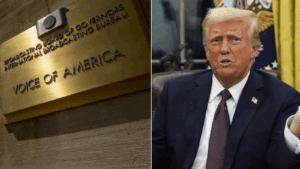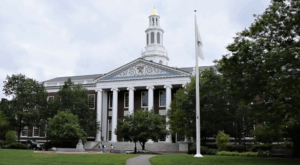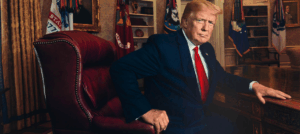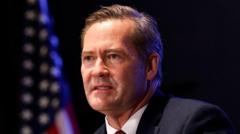Amidst a political climate of intimidation, American universities and law firms are confronting the Trump administration’s demands, with many choosing to stand in opposition rather than capitulate to pressure.
Universities Unite Against Presidential Pressure in an Evolving Legal Landscape

Universities Unite Against Presidential Pressure in an Evolving Legal Landscape
Resistance to political interference in higher education escalates as universities and law firms challenge Trump's administration efforts.
In recent weeks, the political landscape surrounding American higher education and legal institutions has taken a tumultuous turn, following controversial actions by the Trump administration. Many esteemed universities and leading law firms found themselves caught in a dilemma resembling the classical prisoner’s dilemma, driven by presidential retribution against those perceived as adversaries of the administration.
The administration's tactics included targeting law firms that represented political opponents and universities deemed too "woke" or accused of fostering antisemitism. Initially, institutions that struck early deals with the White House seemed to evade impending consequences but risked their own autonomy in the process. Columbia University and several leading law firms chose this path, fearing severe repercussions for noncompliance.
However, a significant shift occurred with Harvard University declaring its refusal to comply with what it labeled “illegal” demands from the Trump administration. This bold stance prompted a wave of solidarity across other universities. More than 400 university leaders issued a joint statement denouncing the government's overreach, asserting a collective stand against political interference in education.
In the legal arena, multiple prominent law firms initiated lawsuits aimed at blocking executive orders aimed at undermining their integrity. The response from the legal community has been robust, with numerous firms rallying in support of the legal action. Moreover, in a surprising move, Microsoft opted to sever ties with a law firm that had aligned with the White House and instead engaged one of the dissenting firms to handle an important case, signaling a broader shift in loyalty among institutions.
As institutions weigh their options in this complex environment, it appears that the perceived strength of standing up to the administration is growing, hinting at a potential turning point in the ongoing struggle for independence in American higher education and legal practices.
The administration's tactics included targeting law firms that represented political opponents and universities deemed too "woke" or accused of fostering antisemitism. Initially, institutions that struck early deals with the White House seemed to evade impending consequences but risked their own autonomy in the process. Columbia University and several leading law firms chose this path, fearing severe repercussions for noncompliance.
However, a significant shift occurred with Harvard University declaring its refusal to comply with what it labeled “illegal” demands from the Trump administration. This bold stance prompted a wave of solidarity across other universities. More than 400 university leaders issued a joint statement denouncing the government's overreach, asserting a collective stand against political interference in education.
In the legal arena, multiple prominent law firms initiated lawsuits aimed at blocking executive orders aimed at undermining their integrity. The response from the legal community has been robust, with numerous firms rallying in support of the legal action. Moreover, in a surprising move, Microsoft opted to sever ties with a law firm that had aligned with the White House and instead engaged one of the dissenting firms to handle an important case, signaling a broader shift in loyalty among institutions.
As institutions weigh their options in this complex environment, it appears that the perceived strength of standing up to the administration is growing, hinting at a potential turning point in the ongoing struggle for independence in American higher education and legal practices.






















